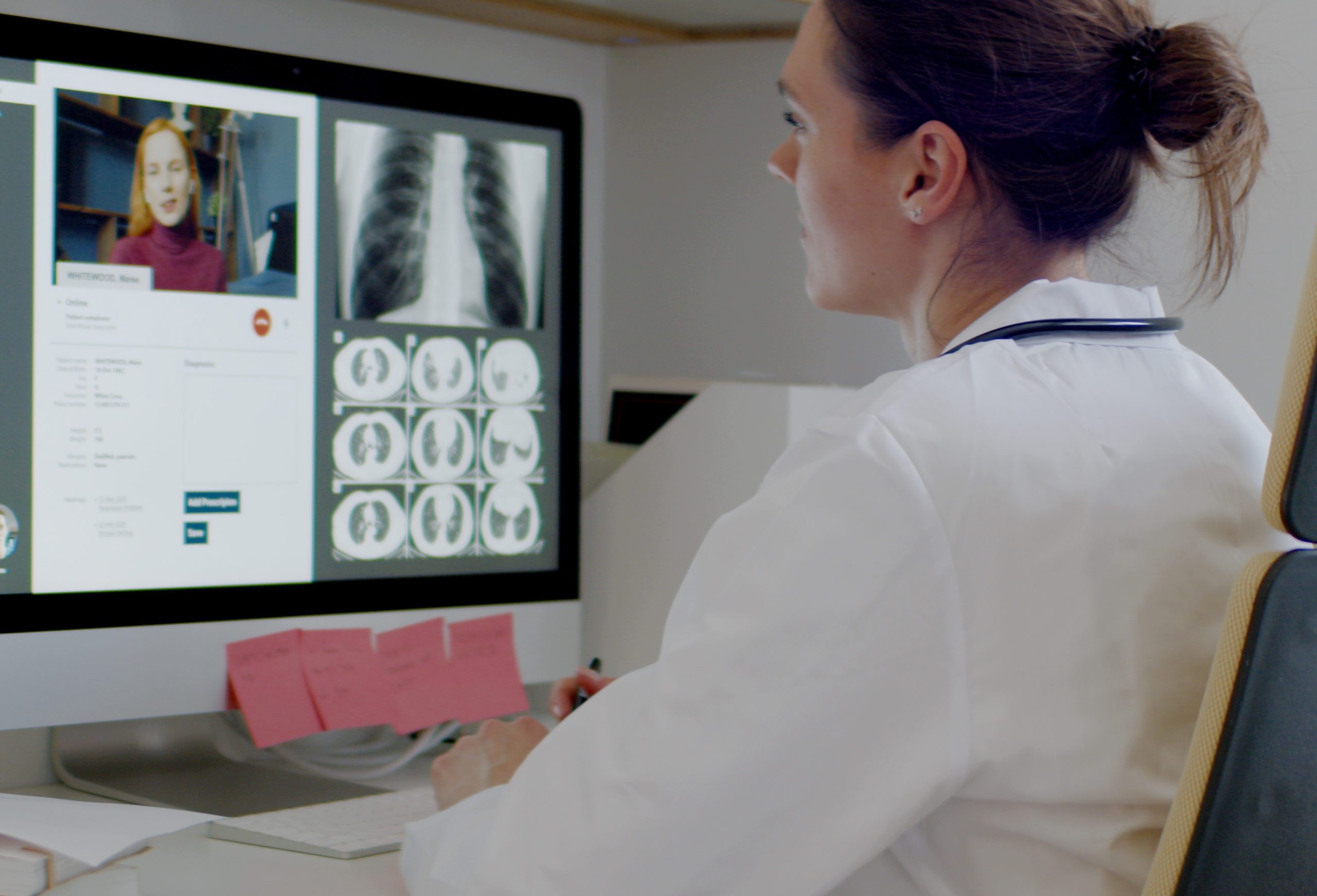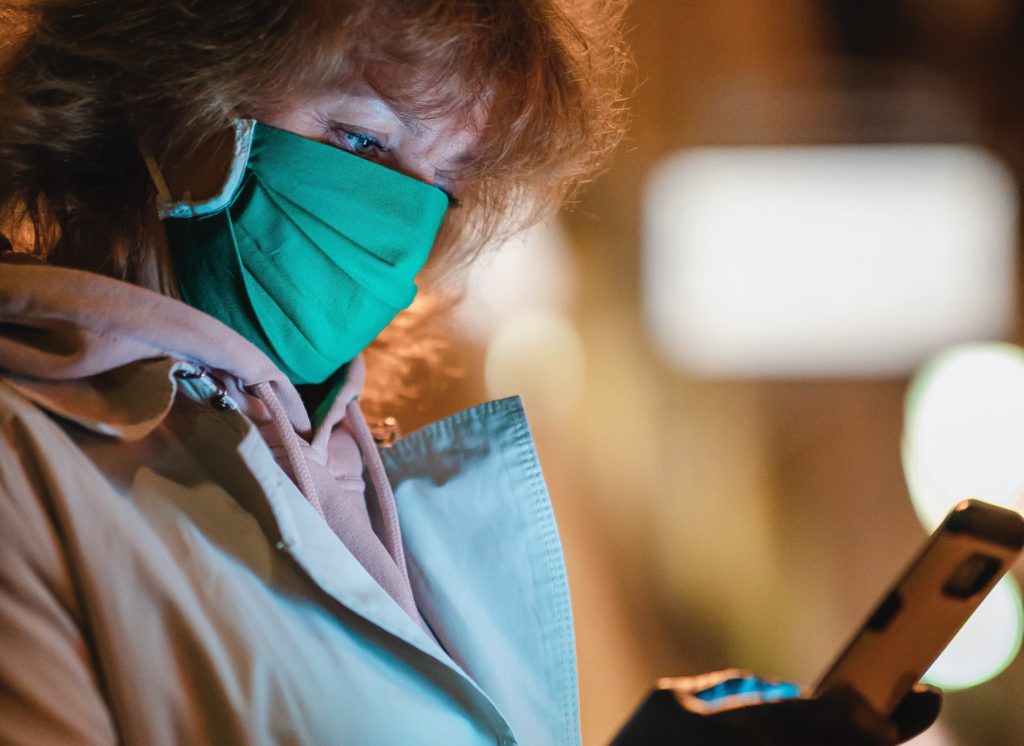Telehealth Adoption for Medical Appointments in Hospitals Plateaus at 20% (The MedTech Download)

Key Takeaways
- While telehealth has seen a massive increase in use since 2020, a recent survey shows that virtual visits seem to have leveled off, accounting for about 20% or less of appointments.
- Despite some opposition in the community, England will be rolling out vaccine passports as a requirement to access larger indoor public venues.
- Wall Street is reacting to the Delta-driven surge in demand for COVID-19 testing, anticipating larger than expected returns for companies like Quest Diagnostics.
Hospital Telehealth Leveling Off at One-Fifth of Medical Appointments, Research Finds

During the pandemic, the use of telehealth skyrocketed. According to MedTech Dive, data from EHR provider Epic, “telehealth made up almost 70% of all ambulatory visits by mid-April of 2020. Before the pandemic, they made up fewer than 0.01%.” The need to deliver healthcare during quarantine, and now social distancing, made telehealth an easy choice.
Amidst the scramble to incorporate telehealth into workflows in office and hospitals, administrators wondered if the boost in virtual visits would wane as the pandemic receded or become a permanent part of the healthcare landscape. It seems that both outcomes are proving to be true. The article goes on to report that “telehealth utilization has oscillated since its peak, generally linked to rising and falling COVID-19 cases.” So while the pandemic has a real-time impact on telehealth use, a new survey shows that current use has seemed to level off at about 20% or less. While this is still lightyears from the initial 0.01%, experts continue to watch to see if that percentage will rise, fall, or stay the same.
Vaccine Passports Due to Launch in England from End of September

As COVID vaccines became increasingly available in the U.S. and other parts of the world, governments began to loosen restrictions for vaccinated individuals. But, since then, COVID cases have risen, in part due to the Delta variant and in part due to the number of people who are still unvaccinated. And when it comes to unmasking and other looser restrictions, using a vaccine-status “honor system” has clearly come with unintended consequences, ones that many governments wish to reverse.
For months, discussions of “vaccine passports” have spurred controversy. Often referred to as “discriminatory,” the concern is that these technology platforms could serve as a catalyst in dividing society into two “classes,” vaccinated and not. But despite those objections, England is moving forward with requiring passports for entry into nightclubs and other large, indoor public venues. UK Vaccines Minister Nadhim Zahawi said this is the best way to keep these businesses operating, citing the fact that “all over-18s will have been offered two doses of a Covid-19 vaccine at this stage.”
Wall Street Boosts Lab Companies Amid Delta Testing Surge

Back in August, the New York Times published a story claiming that, due to a reduction in demand, in June and July Abbott Laboratories destroyed “millions” of tests. In the wake of a significant reduction in demand, a company employee was reported as telling employees that “the numbers are going down.” Since then, the company has responded to the story, disputing it’s assertions.
However, the reality is that earlier this year, companies involved in COVID-19 testing believed that things were changing rapidly, expecting high demand to plummet and stay there. But now, with the rise of the Delta variant, demand for tests has surged, challenging these companies to keep up.
And it comes as no surprise that Wall Street is paying attention to the sea change. Axios reported that “the surge of the Delta variant led to unexpected test volumes for diagnostic lab companies, and Wall Street is anticipating unexpectedly bigger profits for those companies as a result.” And that optimism is further supported by the fact that much of the existing volume still doesn’t include upcoming “federally funded COVID-19 screening programs for K-12 students and staff, or increased testing from employers and local governments for mandatory testing for those individuals who choose not to be vaccinated.”
Cleveland Clinic’s New Prosthetic Arm with Advanced Functionality

The field of prosthetics has benefited from dramatic innovation over the past few decades. While earlier prosthetics were made of wood and leather, and later cosmetic rubber, it was the 1970’s that saw major leaps and bounds. It was then that innovators introduced plastics, polycarbonates, resins, and laminates, “allowing for a lighter and manageable design. Additionally, synthetic sockets were created in order to provide patients with custom comfort.” But even with this innovation, the devices were relatively stationary, and while they stood in substitute for the limb, they really didn’t replace it.
Fast-forward to today, and the options for patients are dramatically improved. Recently at the Cleveland Clinic, researchers developed a bionic arm that “incorporates a sense of touch and movement and allows for intuitive motor control. The device is intended for users who have undergone targeted sensory and motor reinnervation procedures in which motor and sensory neurons are redirected to the skin and muscles in the residual limb, allowing them to communicate with the bionic limb.”
Stay up-to-date on everything that matters to MedTech entrepreneurs and executives, from opportunities within software as a medical device to fundraising. Subscribe below to receive industry insights, MedTech resources, and more delivered directly to your inbox.




